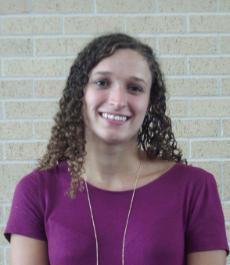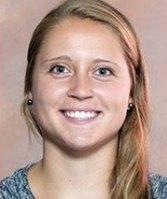Considering Graduate School After Muhlenberg?
Completing an economics degree will give you the critical thinking and quantitative skills needed to be successful in a variety of graduate programs. In addition, Muhlenberg’s liberal arts curriculum has helped you develop your intellectual curiosity and has informed you of the complex problems facing different fields of study. The interdisciplinary focus will help you formulate interesting research questions.
Many alumni with a B.A. in Economics have received graduate degrees and hold positions at well-known universities/colleges, government agencies, and other consulting firms.
Students who enjoy research and/or are interested in a career in higher education should strongly consider pursuing a PhD in Economics.
Recommendations to help prepare you for entry into a graduate program:
- Consult with your advisor early about your future plans!
- Visit the American Economics Association (AEA) website on grad school advice. https://www.aeaweb.org/resources/students/grad-prep
- Take extra economic electives (as your schedule allows), especially 300+ level electives.
- Consider a Mathematics major or minor. A strong foundation in mathematics and a basic understanding of proof writing are essential if you want to be successful in a PhD program. If you won't have time to complete the major or minor, then consider enrolling in any of the following courses: Calculus II, Calculus III, Real Analysis, Topology, and Linear Algebra.
- Most programs will encourage you to submit a research paper (optional) with your application. We strongly advise you to include this in your application. Consult with your advisor on an ideal paper to use and how to revise it.
- Different programs house faculty with different areas of expertise. Thus, programs are far from heterogenous. Begin to think about what field(s) of economics you are passionate about. Research programs/universities that offer those specialized fields.
- Begin to establish connections with your professors. Meet with them to discuss your future plans and inquire about whether they have connections at the Universities where you are planning to apply. In the fall, talk to professors who will be writing letters of recommendation for you. We will need time to construct a personalized letter. You should provide each letter writer with a list of the universities you plan to apply to and each university's application deadline.
Stories From Alumni : Why did I choose graduate school?

Alex Dwyer
Class of 2017
Majors: Economics and Mathematics
Currently in the Economics doctoral program at Texas A&M University
I came to Muhlenberg with the intention of studying Biology and with long term aspirations of attending medical school. However, my interest in Biology soon faded and I found myself frustrated in my mathematics classes because I had difficulty applying the principles to real world problems. I searched for careers where I could combine the two disciplines’ work with real world problems through the lenses of pattern and logic. In wasn’t until I enrolled in a Principles of Microeconomics course (to full-fill my social sciences requirement) that I realized that neither biology nor pure mathematics nor a combination of both was going to allow me to truly thrive, but by delving more into the study of economics I could explore the world through mathematical logic but also use it explain the world.
I decided to apply for graduate schools because it would allow me to pursue my goal of being an educator. My time at a liberal arts institution gave me the opportunity to get to know and work closely with my professors on various research projects and as a tutor. This experience has taught me how valuable good professors can be. In addition, my extensive coursework in ecology has made me interested in how to best manage our world’s scarce natural resources. I am enjoying exploring different fields of economics at Texas A & M and discovering the area where I will thrive and can make the greatest contributions to the discipline.
 Rachel Strow
Rachel StrowClass of 2017
Majors: Economics and Mathematics
Currently in the Economics doctoral program at Rutgers University
The only thing I had figured out upon entering college was that I was going to study mathematics because numbers and logic have always been a natural instinct of mine. Economics was a way for me to apply my mathematical knowledge and rational thinking to a practical, real world field. A fifteen-day trip to a remote town in Costa Rica gave me the opportunity to directly investigate how international economic policies impact different markets and evaluate the externalities they create. My project focused on Costa Ricans' perceptions toward free trade and the effects of the Central American Free Trade Agreement (CAFTA). As I dove deeper in the literature and my research, I discovered further connections between economics and other topics, like environmental health, human behavior, and even ethics. For example, when visiting local gold mines, I observed how workers put themselves in immediate danger of collapsing caves and mercury poisoning in order to make a living. Allowing this to continue without intervention is both unethical and harmful to the environment, but shutting down the mines eliminates livelihoods. My fascination with the interdependence between these ideas drove me to apply to graduate school so that I could further investigate the externalities created by different markets or policies, and create new ideas to handle problems like these.
Dr. Jim Dearden
Class of 1982
Major: Economics
Professor of Economics at Lehigh University
